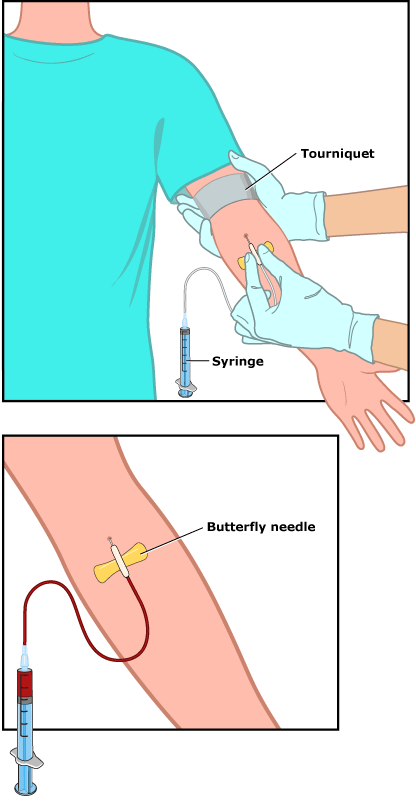Blood Test: IGF Binding Protein-3 (IGFBP-3)
Article Translations: (Spanish)
What It Is
Insulin-like growth factor binding protein 3 (IGFBP-3) is the main carrier of somatomedin C (also called insulin-like growth factor-1, or IGF-1) in the body. Blood levels of both these proteins are controlled by human growth hormone (hGH), a hormone that's produced by the pituitary gland, a pea-sized gland in the brain that works with the endocrine system. The pituitary gland regulates growth and the function of other glands.
But IGFBP-3 is more than just a transporter. It also helps extend the life of somatomedin C in the blood and helps control its effects on body tissues.
Levels of IGFBP-3 are highest during childhood and puberty, then they decrease during adulthood. Levels also may be affected by sexual maturation and nutritional status.
Why It's Done
The main reason doctors order the IGFBP-3 test is for its usefulness as an indicator of whether someone is producing a normal amount of human growth hormone. In this way, the IGFBP-3 test is used to check for pituitary gland disorders and abnormalities in growth hormone production.
Symptoms such as short stature or excessive growth (gigantism) may warrant an IGFBP-3 test. The test also might be used to monitor treatment of growth disorders.
Preparation
On the day of the test, having your child wear a T-shirt or short-sleeved shirt can make things easier for your child and the technician who will be drawing the blood.
The Procedure
A health professional will usually draw the blood from a vein, after cleaning the skin surface with antiseptic, and then placing an elastic band (tourniquet) around the upper arm to apply pressure and cause the veins to swell with blood. A needle is inserted into a vein (usually in the arm inside of the elbow or on the back of the hand) and blood is withdrawn and collected in a vial or syringe.
After the procedure, the elastic band is removed. Once the blood has been collected, the needle is removed and the area is covered with cotton or a bandage to stop the bleeding. Collecting blood for this test will only take a few minutes.

What to Expect
Collecting a sample of blood for the test is only temporarily uncomfortable and can feel like a quick pinprick. Afterward, there may be some mild bruising, which should go away in a few days.
Getting the Results
The blood sample will be processed by a machine, and the results are commonly available after a few days.
Risks
The IGFBP-3 test is considered a safe procedure. However, as with many medical tests, some problems can occur with having blood drawn, such as:
- fainting or feeling lightheaded
- hematoma (blood accumulating under the skin causing a lump or bruise)
- pain associated with multiple punctures to locate a vein
Helping Your Child
Having a blood test is relatively painless. Still, many children are afraid of needles. Explaining the test in terms your child can understand might help ease some of the fear.
Allow your child to ask the technician any questions he or she might have. Tell your child to try to relax and stay still during the procedure, as tensing muscles and moving can make it harder and more painful to draw blood. It also may help for your child to look away when the needle is being inserted into the skin.
If You Have Questions
If you have questions about the IGFBP-3 test, speak with your doctor.
Note: All information is for educational purposes only. For specific medical advice, diagnoses, and treatment, consult your doctor.
© 1995-2024 KidsHealth ® All rights reserved. Images provided by iStock, Getty Images, Corbis, Veer, Science Photo Library, Science Source Images, Shutterstock, and Clipart.com

